If you’re planning to change your hosting provider, you might want to consider switching to Google Cloud. This flexible platform enables you to serve content quickly to your visitors, customize your resource allocations, and scale your site as needed. We’ve put together a Google Cloud hosting review to help you decide if this service meets your needs.
In this article, we’ll review Google Cloud hosting in-depth so you can decide if it’s the best option for your WordPress site. Let’s get started!
What Is Google Cloud Hosting?
The world’s most famous search engine connects people by enabling them to find and share information. However, Google offers many more services beyond just its search function.
Google Cloud hosting uses the same cloud-based infrastructure that powers the company’s most popular products, including Google Drive, Gmail, and more. Its hosting service stores your website data in remote servers, which makes its content quickly available to your visitors:
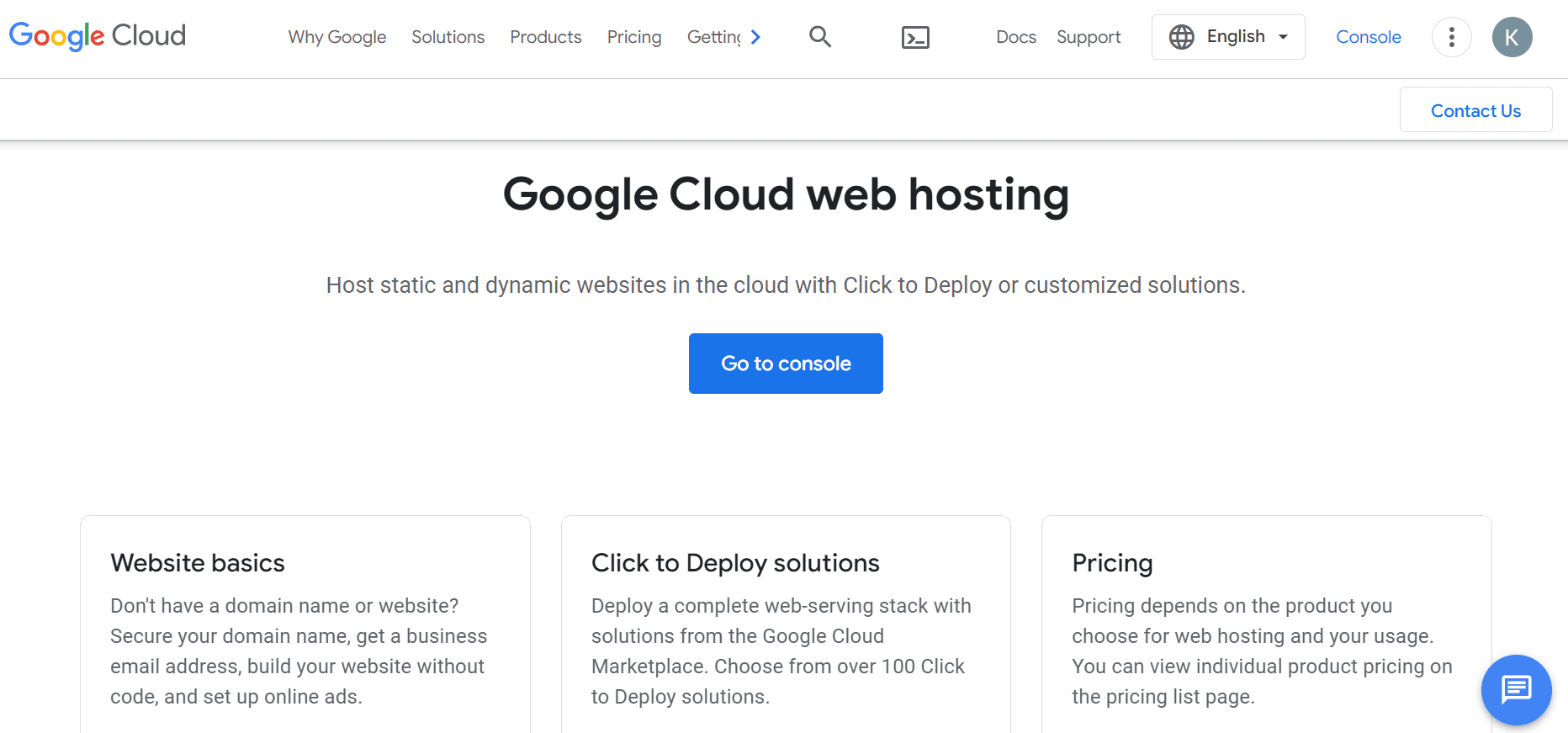
On this platform, hosting is built into the larger Google Cloud console. Here you can manage various “projects”, including developing applications, storing data, and deploying your WordPress website on the cloud servers.
Keep in mind that some third-party hosting providers will also provide access to Google Cloud. For example, Cloudways, which is one of the best hosts for WordPress, enables you to host your site on Google Cloud servers, and then you pay for and administrate the server through the Cloudways dashboard.
What Makes Google Cloud Hosting Different?
In this part of our Google Cloud hosting review, we’ll take an in-depth look at the features you can expect from this platform. Let’s start with uptime.
Excellent Uptime and Uptime Monitoring
Uptime is the amount of time that your website is online and available to users. In an ideal world, a web host’s servers would have 100 percent uptime. However, in practice, there may be times when your site is offline.
Google Cloud offers an uptime guarantee in its Compute Engine Service Level Agreement (SLA). You will be eligible for financial credits if your monthly uptime is less than 99.99 percent (almost a perfect score!).
Additionally, you can monitor your site’s uptime from your Google Cloud console. By navigating to Monitoring > Uptime checks, you can set up automatic monitoring and reports for your website:
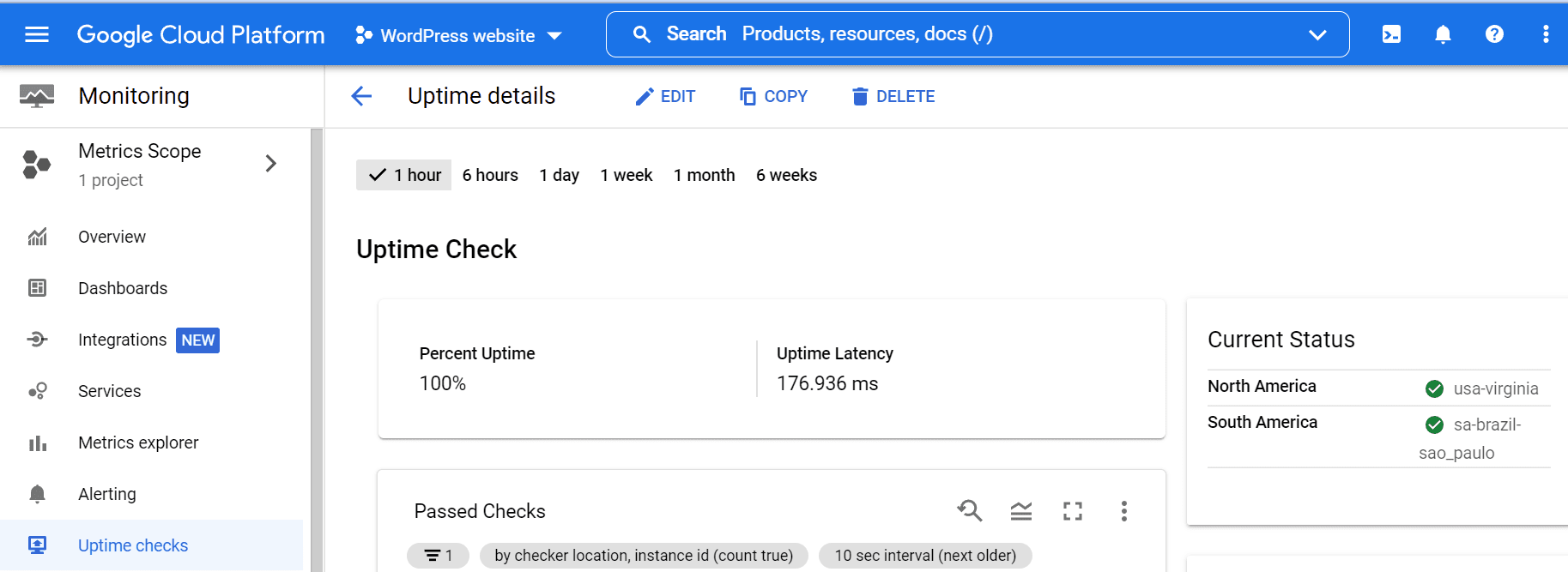
Uptime can significantly impact your Search Engine Optimization (SEO) rankings (since a site that’s offline means lost visitors). Therefore, monitoring this metric with Google Cloud can form an essential part of your SEO strategy.
Customizable Resources and Virtual Machines
One of Google Cloud hosting’s strengths is its customizable nature. With most traditional hosting services, you’ll need to choose from plans that specify set amounts of storage, bandwidth, and other resources.
In contrast, Google Cloud enables you to customize multiple aspects of your hosting plan, including its server location (1), Virtual Machine — or VM — series (2), and machine type (3):
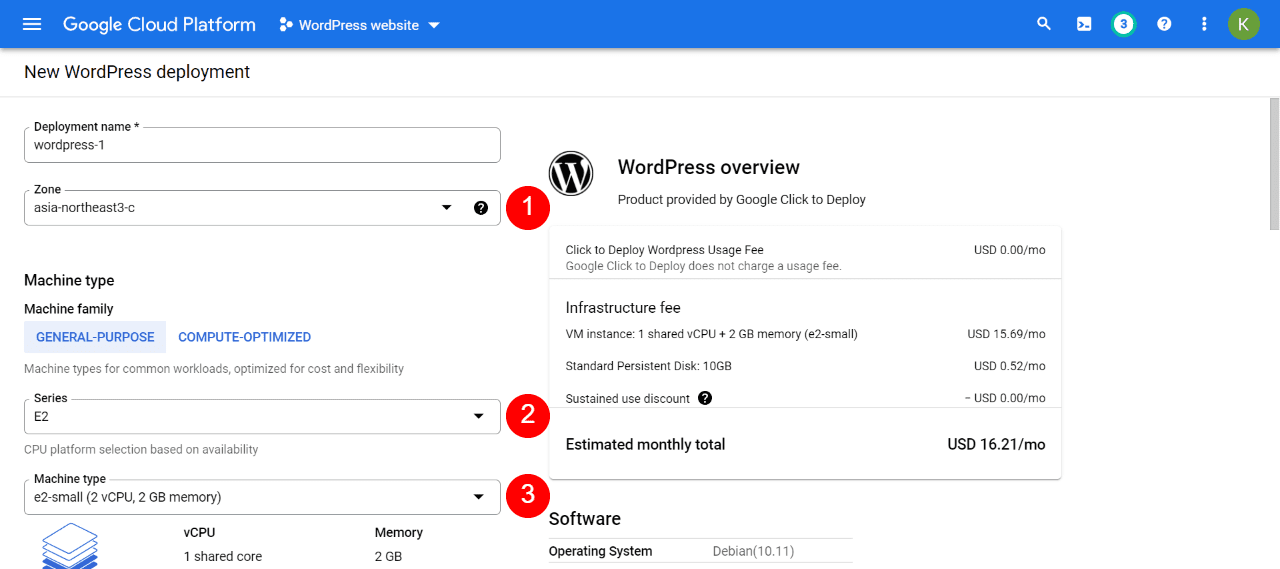
Furthermore, you can customize your memory allocations, bandwidth, and number of CPUs. As such, this setup enables you to pay for only the resources you need, and adjust them as your site grows.
However, keep in mind that this model can be confusing if you’re a complete beginner. You’ll benefit most from Google Cloud’s services if you have an intermediate level of technical server knowledge.
Extensive Global Network
Google Cloud has one of the most extensive global networks you can find, with connections across 27 regions, 82 zones, and more than 200 countries:
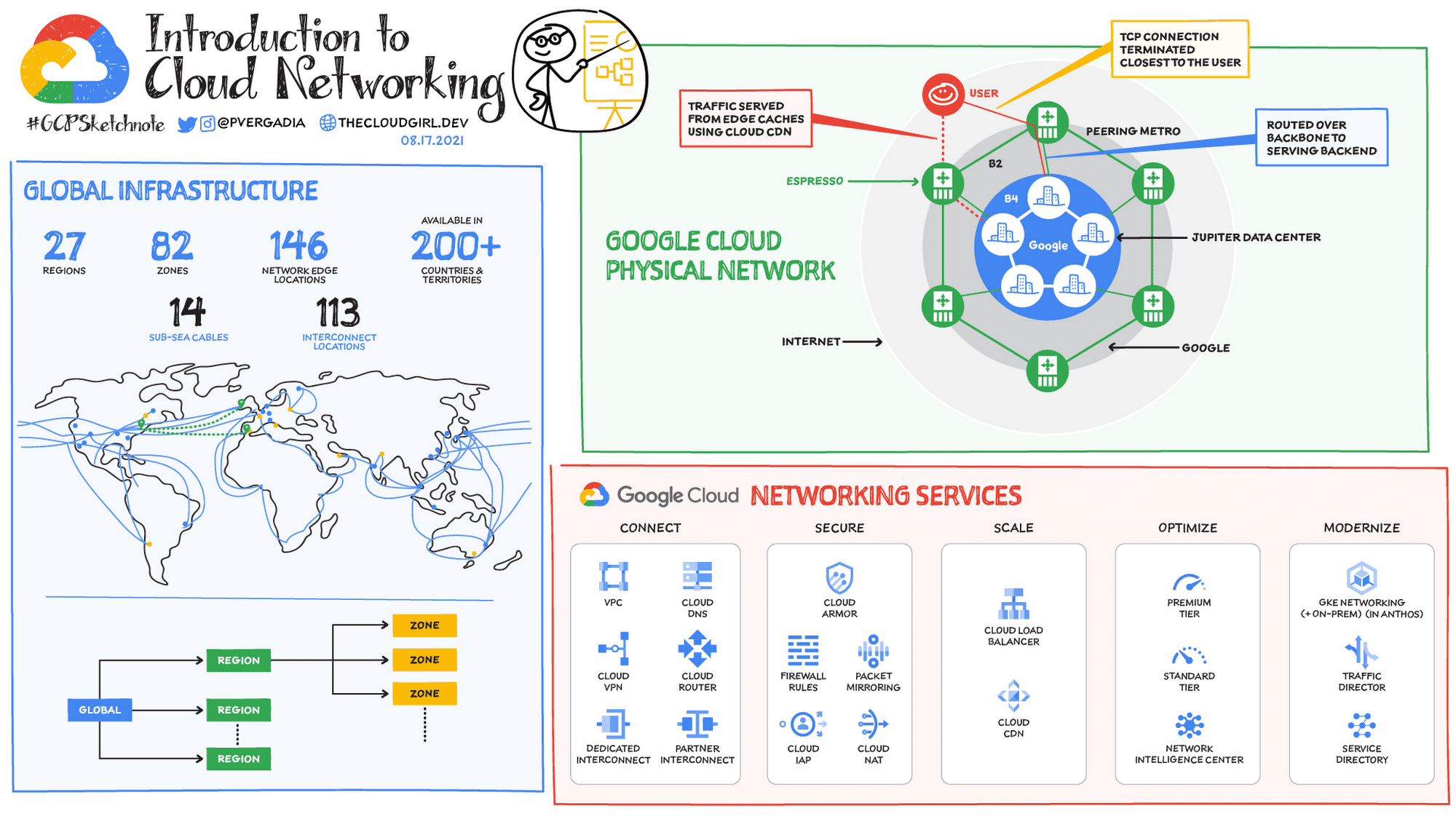
Image source: Google Cloud
Moreover, Google Cloud is continually expanding its network. At the time of this writing, the company plans to branch into ten new regions, including Santiago (Chile), Madrid (Spain), and Tel Aviv (Israel).
Page loading speeds play essential roles in both your user experience and SEO. Therefore, if you have a global audience, choosing a hosting provider that can serve content quickly from multiple locations is in your best interests.
Enhanced Performance Optimization
You can optimize your site’s performance through Google Cloud by choosing the VM and resources your website needs. Additionally, the platform provides upgraded performance optimization through its Network Service Tiers.
This lets you choose either a Premium or Standard package. The former option uses “cold potato” routing for better routing, cloud load balancing, and advanced performance:
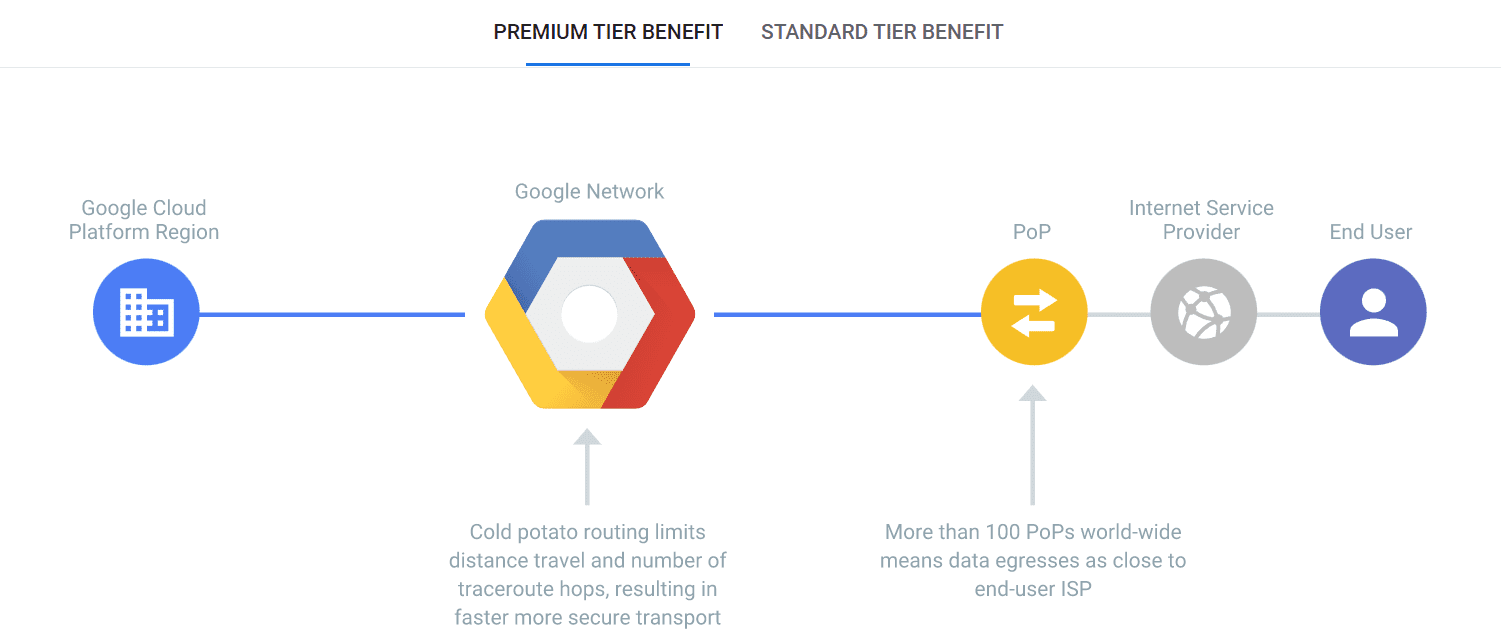
Image source: Google Cloud
Overall, Google Cloud has the advanced infrastructure necessary to run your site at its full capacity. Of course, each of these premium services will increase your overall costs.
Customer support is an essential aspect to consider when choosing a hosting provider. You’ll likely encounter issues with your site at some point. Therefore, you’ll benefit from access to a knowledgeable and helpful customer service team.
Google Cloud provides a customer support hub where you can access online community forums, read detailed documentation, and submit support tickets:
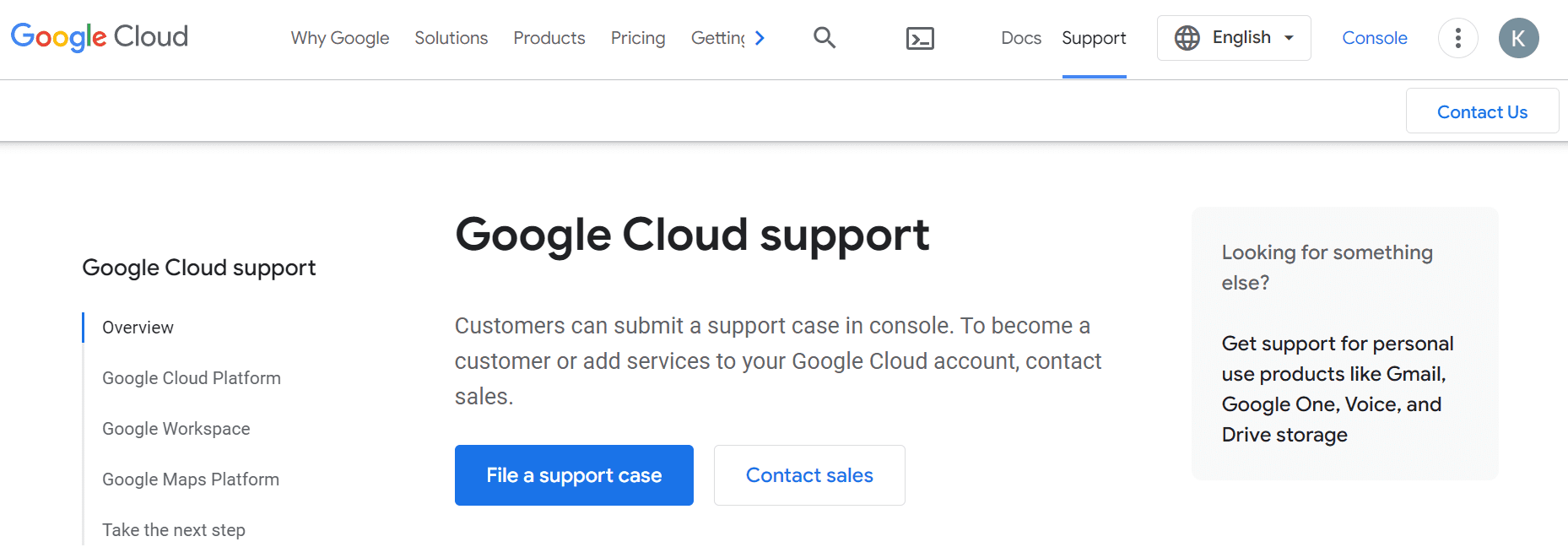
However, keep in mind that the free support is pretty limited. You’ll need to upgrade to premium assistance, starting at $29 per month + 3 percent of monthly charges, if you want one-on-one support, reduced response times, and multi-channel assistance.
Therefore, Google Cloud might be more suitable if you have an intermediate level of technical experience or a significant budget.
Advanced Security Measures
WordPress security is a top priority for many website owners. You’ll need to take active measures to prevent hackers and malware from infiltrating your site, stealing your information, and endangering your visitors. Therefore, you’ll also want to partner with a hosting provider that takes security seriously.
Fortunately, Google Cloud offers excellent built-in security measures. It uses advanced encryption methods, ongoing verification, and expert certifications to secure its network and your site.
Google Cloud has a dedicated team of vulnerability management experts to continually scan for threats and patch security risks. It also has an enterprise-grade firewall to filter incoming traffic and keep out hackers.
Using the Google Cloud Console
You’ll set up and access your website through the Google Cloud console. It looks a little different from other web hosting dashboards, so you might need some time to familiarize yourself with it.
First, you’ll need to create a project and deploy your WordPress website in the console. We recommend checking out our complete guide to installing WordPress on Google Cloud.
Then you’ll have access to a detailed dashboard that outlines your website’s resources, APIs, errors, and more:
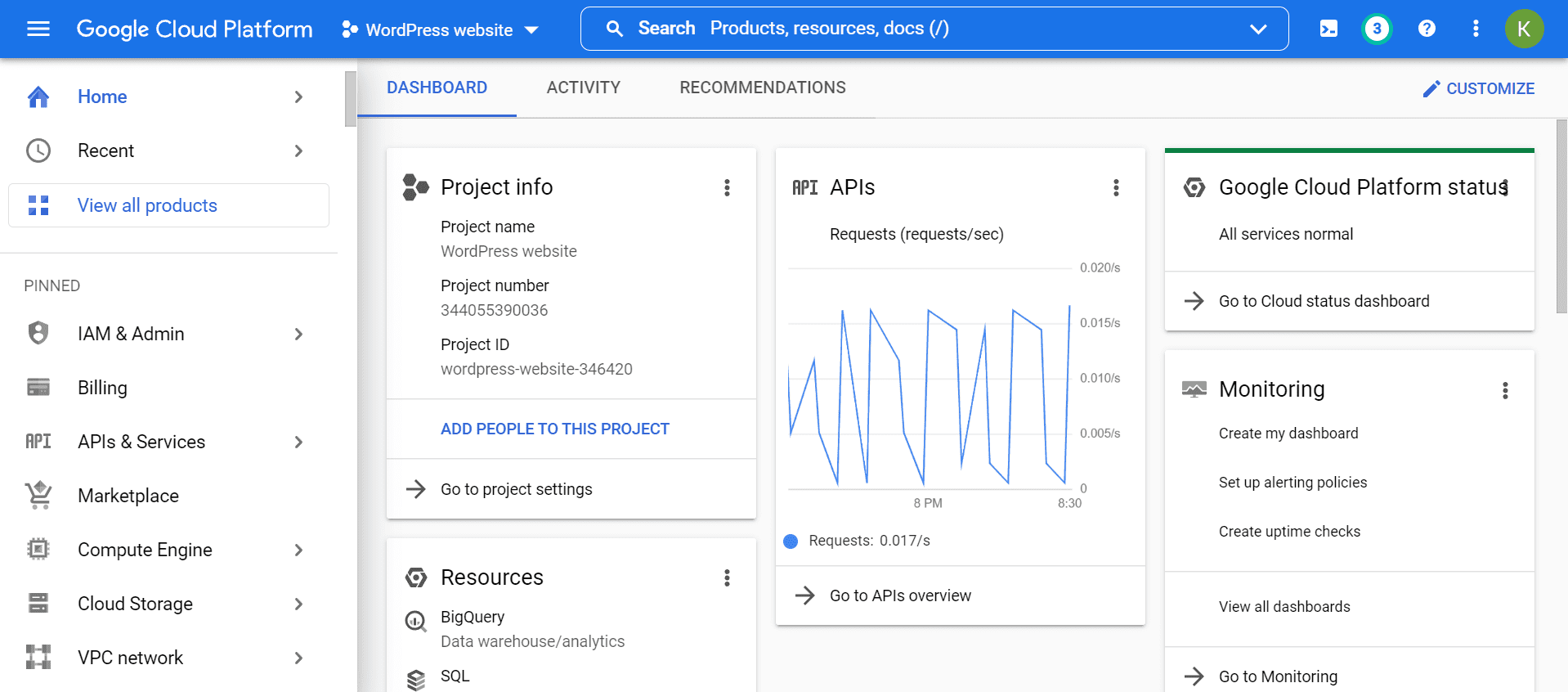
Here you can configure the uptime monitoring we mentioned earlier, as well as other alerts by clicking on Go to Monitoring.
You can also check out your VM configurations by selecting Compute Engine. Here you’ll see your VM instances, nodes, and schedules. There’s also a helpful Learn Tutorial option if this is your first time using the console:
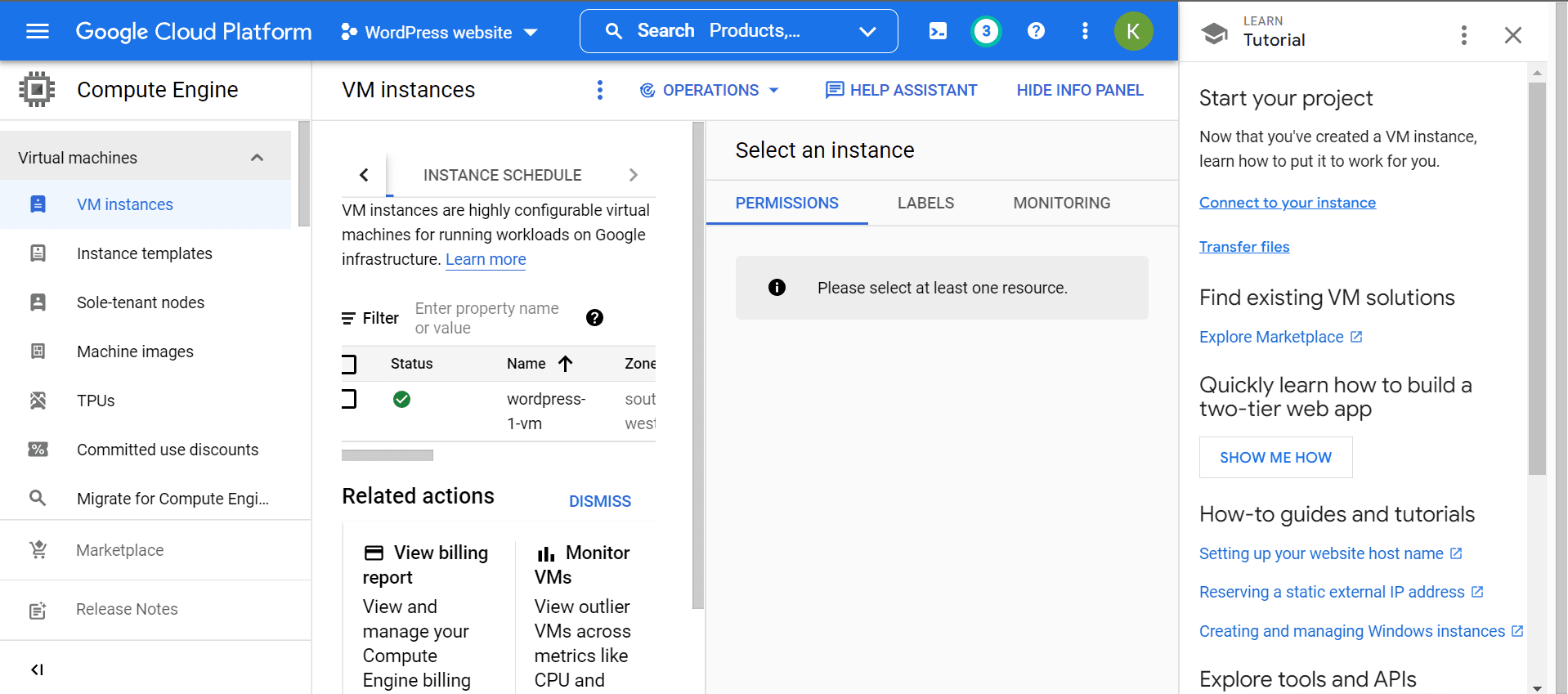
Overall, the console can feel a little overwhelming if you’re used to more traditional hosting providers. There are so many settings and configurations that you might not know where to start. Therefore, we recommend using one-click deployments and relying on the support documentation as much as you need.
Google Cloud Hosting Price
Most WordPress hosting companies charge fixed monthly or annual subscriptions. In contrast, Google Cloud will charge you for the resources you consume. These services will include your data storage, a Virtual Machine (VM), and access to different server locations.
We recommend using the Google Cloud pricing calculator. It can give you a cost estimate based on your machine and resource needs.
Moreover, you can upgrade your subscription by purchasing additional Google Cloud Networking services. These add-ons can boost your site’s performance and security, so you can provide the best possible user experience to your visitors.
Note that Google Cloud will give you a $300 free credit once you sign up for its hosting services. You’ll just need to confirm your debit or credit card details to access this bonus, and use the credit within the first 90 days.
Wrapping Up Our Google Cloud Hosting Review
Google Cloud hosting is a highly customizable and performance-based option for WordPress websites. You’ll have control over which resources and Virtual Machines (VMs) your site can use, plus access to the extensive Google Cloud network with its advanced security measures.
Overall, Google Cloud hosting isn’t the most straightforward option for beginners. You’ll want an intermediate level of technical knowledge unless you’re prepared to invest in premium support. However, if your top priority is performance, you may want to consider this hosting option. Remember, you can do that through Google Cloud‘s platform itself or through Cloudways and have Divi and your Elegant Themes membership integrated into your plan from the beginning.
If you’re looking for other managed WordPress hosts and don’t want something as complex as Google Cloud, check out Pressable, SiteGround, and Flywheel.
Do you have any questions about Google Cloud hosting? Let us know in the comments section below!
Featured image via KWstudio / shutterstock.com













This information about hosting is very useful. I am considering hosting my new website hosting. Mainly because of the speed.
Glad you found it helpful, Valeria 🙂
I recently switched to Google Compute Engine for my affiliate WordPress websites, and the difference between before and after in website speed, server uptime and performance is truly remarkable.
How could I install Divi themes on Google Clould?
Great article, Will! We host sites on Google, Azure and AWS. When it comes to the control panel interface, simplicity and ease of launching new services, in my opinion, AWS is far superior.
Don’t worry! We’ve got AWS in the queue 😉